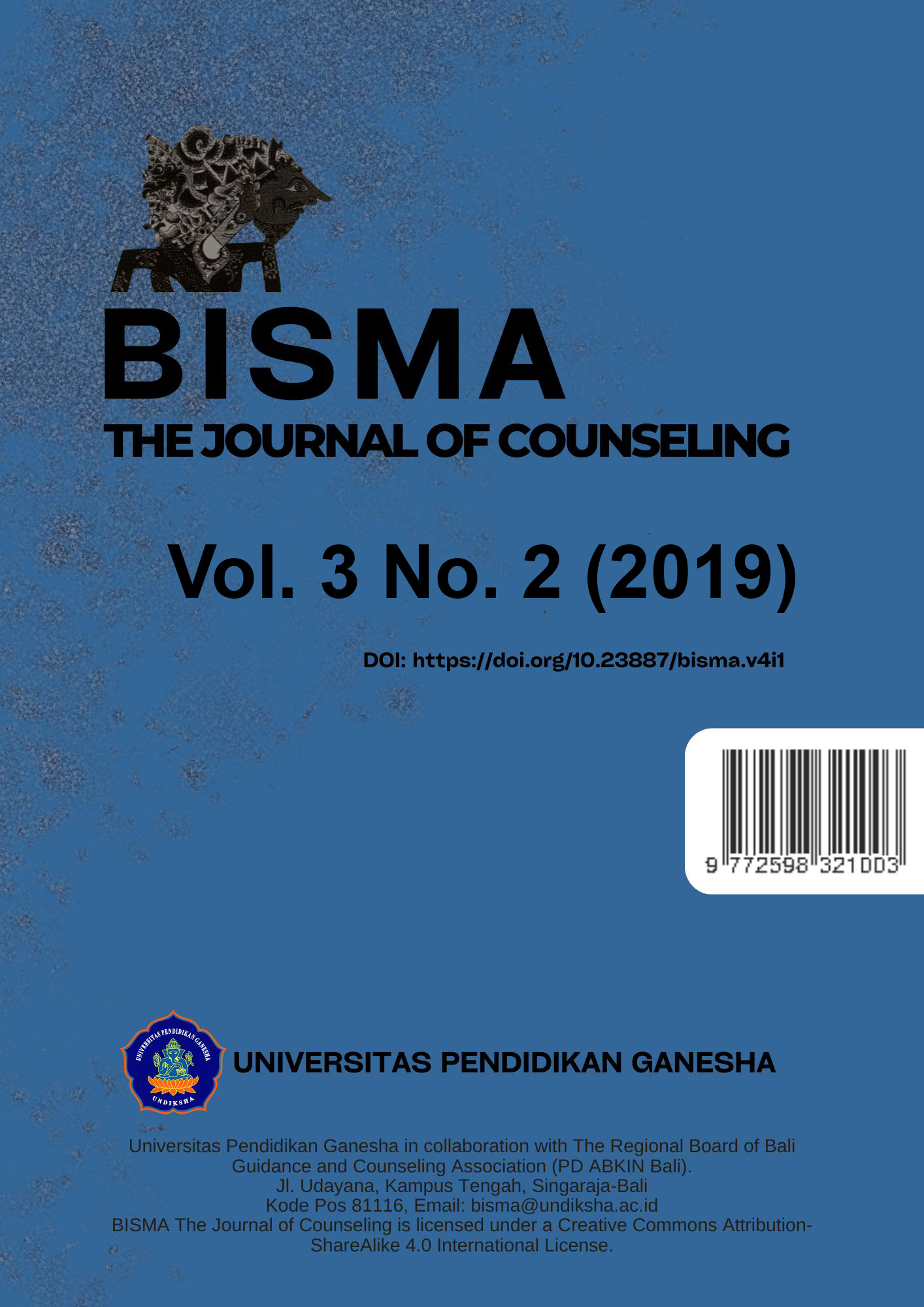Emotional Intelligence and Academic Achievement Among Management and Science University’s (MSU) School of Education and Social Sciences (SESS) students
DOI:
https://doi.org/10.23887/bisma.v3i2.22658Keywords:
Academic achievement, emotional intelligent, university students.Abstract
This study aims to look at the existing level of emotional intelligence among Management and Science University’s (MSU) School of Education and Social Sciences (SESS) students. It will also look at the relationship between intrapersonal and interpersonal level among SESS students. The sample is 100 students that divide by 50 males and 50 females. In this research, it used a survey tool which Emotional Competencies Inventories (ECI). In this research it used inventory with 40 items in it. It is divided to two parts, intrapersonal and interpersonal abilities. First is to recognize emotions categories of self. Second is emotional self-management and lastly personal motivation. Interpersonal part is consists of two categories, which is the ability to recognize others feelings and the ability to handle relationships effectively. This researcher analyzes the data using the Statistical Package for the Social Science (SPSS) version 17.0. The reliability for this instrument (Emotional Intelligent Inventory) is .791. The data was process by using the descriptive statistics of the mean score and the standard deviation. Pearson correlation coefficient is used to measure the relationship between the construct of intrapersonal and interpersonal relationships among the students. The results showed that each of the questions and objectives of the study have been answered. The results of the study also illustrate the level of emotional intelligence among SESS students are at moderate level. This study also discusses the results of the study, future research recommendations and limitations of the studyReferences
Ameneh Gharetepeh, Yahya Safari, Tahereh Pashaei, Mansour Razaei, Mohammad Bagher Kajbaf J Adv Med Educ Prof. 2015 Apr; 3(2): 50–55.
Arockia Maraichelvi*, Sangeetha Rajan (2013) The Relationship between Emotional Intelligence and the Academic Performance among Final Year under Graduates. Universal Journal of Psychology 1(2): 41-45, 2013 http://www.hrpub.org DOI: 10.13189/ujp.2013.010203
Austin E. J., Evans P.,Goldwater R. and Potter V. (2005). A Preliminary Study of Emotional Intelligence, Empathy and Exam Performance in First Year Medical Students. Personality and Individual Differences, 39, 1395–1405.
Bar-On, R. (1997). Development of the BarOn EQ-i: A measure of emotional and social intelligence. Paper presented at 105th Annual convention of APA Chicago.
Bar-On, R. (1997). The Emotional Quotient Inventory (EQ – i): Technical Manual. Toronto: Multi-Health Systems.
BMC Medical Education volume 17, Article number: 41 (2017)
Maizatul Akmal Mohd Mohzan, (2013) Norhaslinda Hassan, Norhafizah Abd Halil The Influence of Emotional Intelligence on Academic Achievement Procedia - Social and Behavioral Sciences 90 (303 – 312)
Ranasinghe, P.,. Wathurapatha, W. S , Y. Mathangasinghe & G. PonnamperumaEmotional intelligence, perceived stress and academic performance of Sri Lankan medical undergraduates
Downloads
Published
Issue
Section
License
BISMA the Journal of Counseling is an Open Access Journal. The authors who publish the manuscript in this journal agree to the following terms:
BISMA Journal is licensed under a Creative Commons Attribution 4.0 International License. This permits anyone to copy, redistribute, remix, transmit and adapt the work provided the original work and source is appropriately cited.
This means:
BISMA The Journal of Counseling is licensed under a Creative Commons Attribution 4.0 International License.
(1) Under the CC-BY license, authors retain ownership of the copyright for their article, but authors grant others permission to use the content of publications in BISMA Journal in whole or in part provided that the original work is properly cited. Users (redistributors) of BISMA Journal are required to cite the original source, including the author's names, BISMA Journal as the initial source of publication, year of publication, volume number, issue, and Digital Object Identifier (DOI); (2) The authors are the copyright owner of the article, and the author grants the BISMA Journal held the first publication right.








